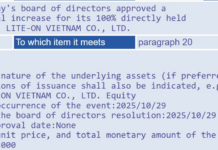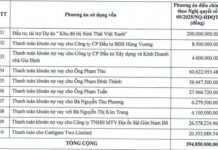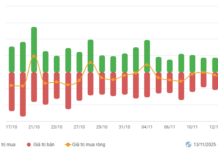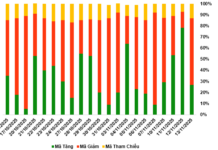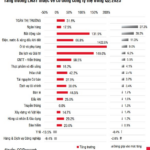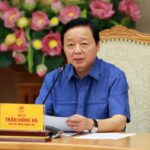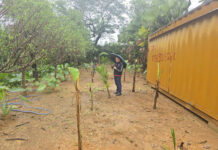In a recent submission to the Prime Minister, the Ministry of Agriculture and Environment, and the Ministry of Finance, the Institute proposed a simplification of the process for determining land use fees for projects. The current process is often cumbersome, time-consuming, and costly for businesses, especially when converting land use to residential purposes, which can result in a significant increase in fees.
The Ministry of Finance and the Ministry of Agriculture and Environment are currently presenting the Government with a proposal to amend Decree 103/2024 on the method for determining land use fees and Decree 71/2024 on land price tables. One of the suggestions is to adopt a five-year land price table issued by the State, along with an annual adjustment factor.
In line with this proposal, the Institute recommends allowing enterprises to self-declare land use fees based on the price table published by the provincial People’s Committee. The tax authority would then inspect and finalize the declaration before issuing the land use right certificate. If there is an overpayment, enterprises can offset it against other projects; if there is a shortfall, they will pay the difference.
Mr. Pham Viet Thuan, Director of the Institute, believes that this mechanism is feasible, given that enterprises already self-declare and pay value-added tax and personal income tax. Extending this practice to land use fees would streamline procedures and reduce long-standing debts amounting to thousands of billions of dong.

Da Nang real estate market in 2025. Photo: Nguyen Dong |
Furthermore, the Institute proposes that the Land Law specifically regulates the collection of land use fees for different cases. Specifically, for land lease, the annual payment should be 0.5% of the land price announced by the locality; for allocated land, the payment should be calculated using a coefficient determined by the locality; and for conversion to residential land use, the maximum collection should be 30% of the land price. Exemptions and reductions in land use fees will follow current decrees.
According to Mr. Pham Viet Thuan, incorporating these rates into the law will enable provinces and cities to implement them immediately without waiting for appraisal results from councils or consulting units, which often takes time and may lead to discrepancies. This approach is expected to enhance transparency, reduce red tape, and reform the land sector, which has long been considered complex.
In the context of the real estate market facing delays in projects due to procedural hurdles and enterprises owing significant land use fees, this proposal, if approved, will not only improve enterprises’ financial and project management but also reduce the burden on managing agencies. It is expected to boost capital flow into the real estate market and enhance budget revenue.
The draft amendment to Decree 103 on land use fees and land rent proposes a reduction in the additional collection of land use fees from 5.4% to 3.6% per year. For conversion charges, the Ministry of Finance proposes to calculate land use fees using the old method instead of the entire difference as currently applied.
Additionally, the draft amendment to the Land Law 2024, which is open for feedback, suggests removing the market factor in primary land valuation. Instead, land prices will be issued by state agencies through a five-year price table or adjusted annually using a coefficient.
Phuong Uyen
SSI Research Eyes VN-Index Marching Towards 1,800 Points
SSI maintains high hopes that Vietnam will be upgraded to Emerging Market status by FTSE Russell in October 2025. This anticipated upgrade could potentially attract approximately $1 billion in capital inflows from index-tracking ETF funds.
Unlocking Land Potential: Reducing Financial Burdens for Citizens when Changing Land Use
“Vietnam’s Deputy Prime Minister, Mr. Tran Hong Ha, has highlighted a pressing issue regarding land prices. According to local reports, there has been a sudden surge in land values, resulting in significantly higher payments for citizens. This unexpected development has caught the attention of the government, with the Deputy Prime Minister taking note of its impact on the people.”
Reforming the Land Law: Multiple Localities Petition to Remove the Proposed Commune-Level Land-Use Planning Requirement
Are there any other adjustments you would like to make to this text?
“When providing feedback on the revised Land Law, several northern localities proposed removing the suggested period for communal-level land-use planning. They argued that instead of having a fixed planning period, it would be more efficient to implement a five-year communal land-use plan that can be adapted and adjusted as needed.”













